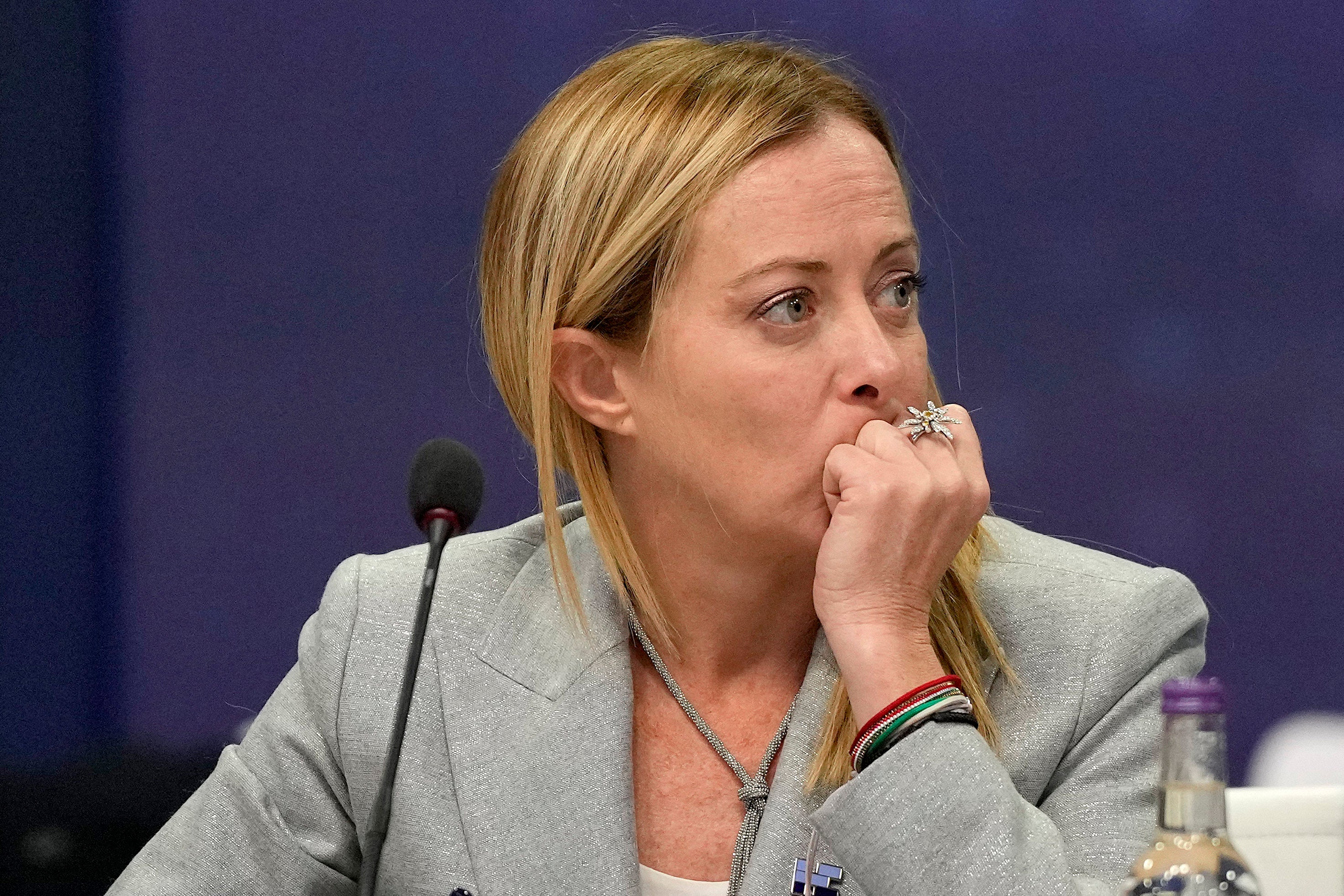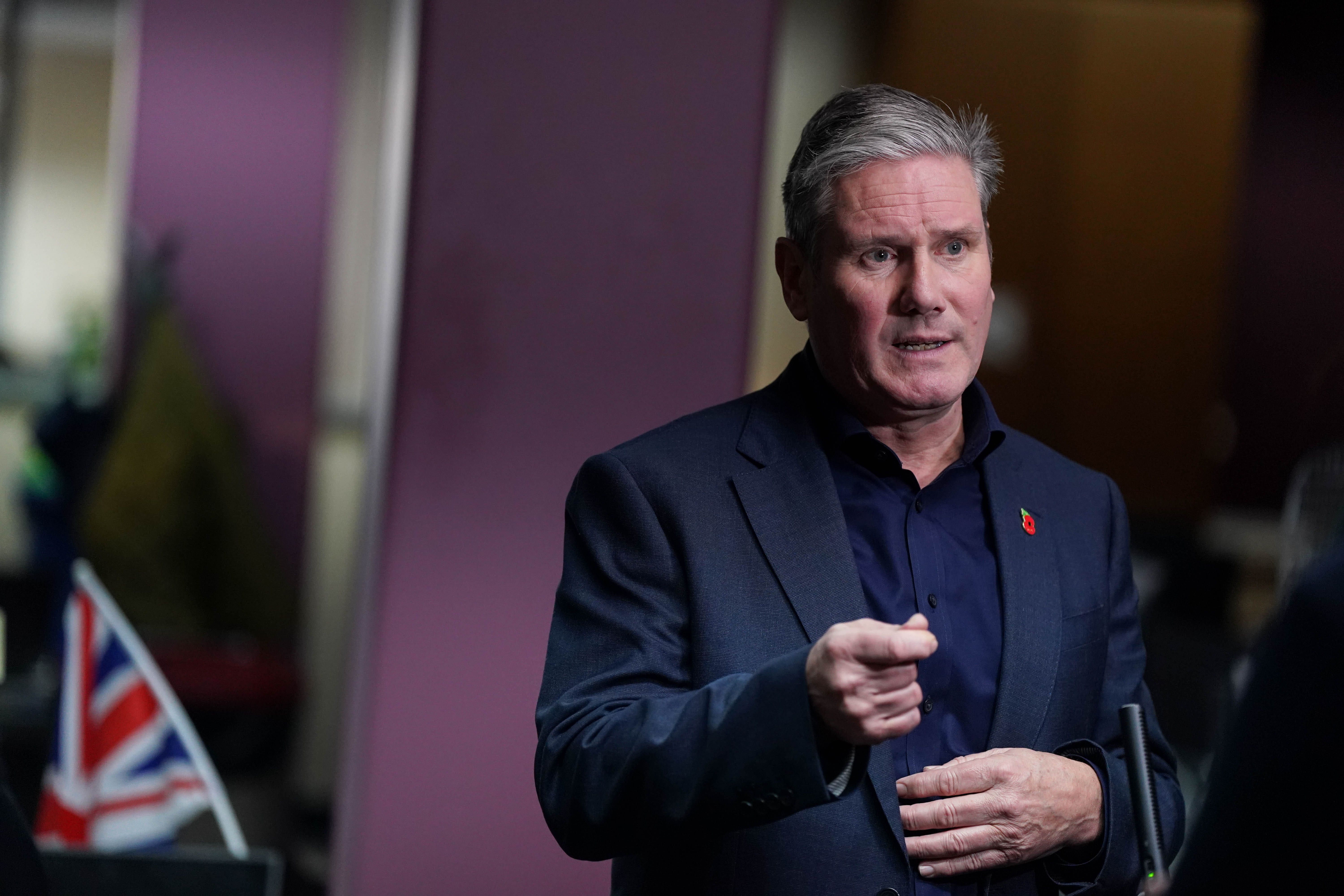Does the rest of the 2020s belong to the far right?
With the election of a firebrand libertarian in Holland in November and Le Pen within shot of the Elysee Palace, Ben Judah, author of New Europe, considers how the UK could soon look like a liberal outlier..

Sadly nobody would dispute that Britain, since the Brexit referendum, has become a more inward-looking place. European politics has become a place apart. But this doesn’t just apply to Conservatives. The shock and befuddlement of British liberals at the election results in the Netherlands in November – which saw the far right led by Geert Wilders score a historic win – is part of this. Consumed by culture wars that started in 2016, the UK as a whole has missed the EU’s own anti-migrant turn.
From Wilders’s party, campaigning against an “asylum tsunami”, clinching the top spot in the Netherlands, to the anti-migrant bus-burning and mass violence which erupted in the heart of Dublin in the same week, not to mention polling surges for the Alternative fur Deutschland (AfD) and Marine Le Pen’s party in France, politics across the continent is reacting to historic levels of migration – which the far right has capitalised on.
In 2022, nearly a million asylum seekers arrived in the EU, Switzerland and Norway, on top of some four million Ukrainians who had already sought safety there. Asylum requests in the EU have soared 38 per cent since 2019, nearing heights of 2015-2016, when the European press last spoke of a “migration crisis”. These numbers are alarming European leaders, not only because they suggest that none of the measures put in place in 2016 proved sufficient, but because they are alarming European voters.
In the Netherlands, the 13-year-long centrist era of prime minister Mark Rutte, is decidedly over. Wilders’s is a particularly extreme example of a kind of politics that has been gaining ground everywhere. The Dutch politician, whose long campaign to get here began 17 years ago when he founded the Freedom party, won a quarter of the seats in parliament by calling for a halt to accepting asylum and migrant pushbacks on Dutch borders. But a hardening of attitudes is evidenced across Europe.

In Germany, when it comes to migration, the Merkel era is decidedly over, too. Chancellor Olaf Scholz, speaking of asylum numbers, has said “we must finally deport on a large scale”. Given the anti-migrant AfD has been polling second, at 21 per cent – a full five points ahead of Scholz’s historic social democratic party of government – his remarks reflect the national mood. Friedrich Merz, the leader of the Chrisitian Democrats, has made curbing migration his major offering, replete with remarks about Berlin suburbs not being sufficiently German. Even the German hard left has been remoulded by migration. The charismatic Sahra Wagenknecht has collapsed the Die Linke party in parliament as she builds her own left anti-migrant force in politics. No political family is immune.
In Scandinavia, long seen in Britain as a beacon of progressive values, both Denmark and Sweden have taken a decidedly rightward turn on migration. In Denmark, this has been led by the centre-left, which in its attitude to asylum or breaking up immigrant “ghettos” is in fact to the right of most European centre-right parties. Meanwhile, in Sweden, where the far-right Sweden Democrats are the largest party propping up a minority right-wing government, a rightward turn on migration is also identifiable. Tight new packages on where asylum seekers can live or whether they can be deported for so-called “shortcomings in lifestyle” are being discussed.
True, elections in Spain and Poland have gone the other way this year. But in each of those the centre-left triumphed narrowly over a right that has become deeply radicalised on the migration question. Not to mention entrenched. Spain’s far-right Vox may have fallen to 33 seats from 55 seats, but it had precisely zero seats in parliament in 2016. The so-called “Iberian exception” to the far right has been decidedly buried.

Obviously, all this is being watched by the European Commission with concern. But not panic. True, Wilders’s party may support a “Nexit” referendum but the expectation is that he will seek to trade this away for a coalition. Overall, the Commission sees Giorgia Meloni in Italy as the template for what the far right in power actually looks like. Her politics has offered wavering coalition partners a simple trade: in exchange for power she will drop her anti-EU agenda, while staying loyal to her anti-asylum agenda.
The real scenario Brussels insiders are contemplating is not a series of far-right leaders taking power and leaving the EU, but these governments taking control of the Brussels institutions are remaking Europe in their image. As to whether or not this happens will depend on how the 2027 elections turn out in France – which, as far as the nature of the EU, remains just as in Napoleon Bonaparte’s day, the crucible of Europe. Worryingly for European liberals, the Macron presidency already has a lame duck feeling to it due to his party’s loss of control of parliament. Unable to run a third time, Parisian insiders feel that Le Pen has a real shot at the Élysée this time – with the real questions being to what extent will she follow the Meloni playbook?
Today, British politics may be consumed over questions of whether or not the Rwanda offshore asylum processing plan is legal – let alone viable. But it is often forgotten that both Germany and Denmark are looking into similar schemes. Italy, meanwhile, has already secured some offshore processing in Albania. The bigger question of whether the European Union, collectively, moves towards abandoning or reforming the treaties that underwrite asylum law is a political one. Does the rest of the 2020s belong to the far right?
One thing there can be no doubt about is that European societies have already been dramatically changed by migration. France, which in 1950 was 0.55 per cent Muslim, is now over 10 per cent so. Germany, which Chancellor Helmut Kohl insisted was not an “immigrant society”, has become one – a startling 17 per cent of its population were born abroad. Britain’s population is 14 per cent foreign born – like the United States. Even Ireland, until recently a land defined by emigration, is now 18 per cent foreign born – a higher percentage than in the US.

Criss-crossing the continent for my new book, This Is Europe, seeking to document the continent’s dramatic transformation, one of my main questions was: what does it look like to the migrants themselves? One of the things that struck me was that asylum seekers and refugees as diverse as Syrian men in Berlin, or Afghan women in Athens, were themselves struck by how Europe was not the Europe they expected – but one transformed by migration into a very different kind of society.
In France and Germany, some felt there was in fact too much immigration – from people of other groups. Many felt the Europe-born middle class had little clue how diverse and migrant-based the working populations of the continent had now become. Repeatedly, I was told by the migrants themselves that European authorities turned their eyes away from both the exploitation of migrants or the power of ethnic gangs.
In 2024, there is a very real chance that Britain could elect a government led by Sir Keir Starmer, committed to more liberal values on asylum than those of the Conservatives. There is a very real chance this could happen, with Labour cancelling the Rwanda plan, just as various EU countries start their own versions. Britain felt lonely in Europe in its populist era, when Europe seemed a liberal bloc. It may come to feel lonely in a very different way in a Europe where politicians like Geert Wilders and Giorgia Meloni set the tone.
Subscribe to Independent Premium to bookmark this article
Want to bookmark your favourite articles and stories to read or reference later? Start your Independent Premium subscription today.
Join our commenting forum
Join thought-provoking conversations, follow other Independent readers and see their replies
Comments